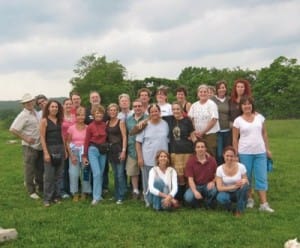Among the many tragic aspects of alcoholism is that it doesn’t only affect the alcoholic. The disease extends its tentacles into the lives of all those who surround the addict until the entire family is ill. Years of living with an alcoholic can plunge the family, as well as close friends, into their own morass, where they will often suffer abuses, co-dependencies and addictions of their own. And it isn’t often easy to know who is suffering. Addiction takes place behind closed doors with addicts and their loved ones becoming masters of deception. But if you suspect this issue may affect your relatives, friends or other loved ones, there is much that you can do to help. But “helping” doesn’t necessarily mean “fixing.” It is important to remember that it isn’t our job to solve the problem—this is impossible. Rather, we can show love and support while encouraging healthy ways of approaching the addiction. If you suspect that a friend or relative is dealing with an addict in his or her family, tread gently. Many are fiercely protective and deeply steeped in a bond of secrecy. Alcoholics and lying go hand in hand, and these patterns of hiding and covering up often extend to members of their families as well. Understand that it may take some time to get the individual to open up and feel comfortable. You will need to work on establishing a relationship of trust before trying to address the addiction issue. At all times, empathy is the best approach. Even if you have not had an alcoholic spouse or parent, you may be able to uncover some other commonality or connection that will show the individual that you understand some of the challenges he or she is dealing with and that you can be trusted. Encourage the individual to get professional help, even if the addict will not. Many families of addicts become so hyper-focused on the addicts and their issues and needs that they neglect their own. They believe everything would be better if only the addict would get better; they may not realize they too need help. Al-Anon is a good place to start and helps families to understand the addict and the behaviors and patterns that accompany addiction. You may also be able to help in practical ways. When a family is burdened with cancer or death, friends, family and fellow church members are quick to reach out with meals and other forms of tangible support and love. However, this rarely happens in the case of addiction. Yet these families are also struggling with illness, hardship and an uncertain future. While the family may refuse your offers of support, see if there is something you can do to be of service. The gesture will be greatly appreciated. Lastly, be patient, because this is a long process. When we have an expectation for how people should heal, we frustrate both them and ourselves. Rather, seek to simply be a friend and a source of support; you can do this with no expectation of a particular outcome. And the result is that the family will feel loved and accepted—the last thing they need is to feel someone is judging them for circumstances beyond their control. You may also suggest Christian drug and rehab centers, or that the family consider other more formal approaches, such as an intervention. Make the suggestion, but let this happen on the family’s own time. Continue to pray for the family’s healing and be supportive in any way you can.


